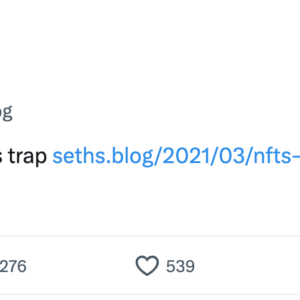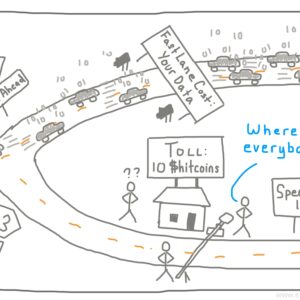The Entropy of Trust
I'm always amazed that people seem shocked when something they've trusted is usurped for commercial gain. Somehow, in a world that's incredibly dynamic and built on Darwinian evolutions at all levels from single cell organisms up to commercial entities, we still hold onto this naive view that our trust in systems is somehow static.
This is probably because we build our relationship with trust based on our relationships with close friends and family. In most (healthy) cases, this one-to-one trust grows slowly or remains constant over time. A fairly static model for trust is reasonable in this microscopic system.
Unfortunately, we tend to implicitly model the trust we place in third parties and macroscopic communities along similar lines and that simply doesn't reflect reality.
Way back in the TV era, we trusted the personalities we saw there and now a similar thing has happened in the social sphere. Of course, those personalities were frequently corrupted by sponsors and their brands leveraged to sell us a bunch of shit they may or may not actually endorse.
When Facebook started, we trusted its small community and overshared the hell out of everything. Over time, commercial interests made it turn that trust into behavioral hooks designed to rob our attention and our sharing into data designed to better pay advertisers.
Reviews are an aggregation of community signals and we tend to immediately trust them because of this. They actually started out as a pretty decent signal for deciding which products or experiences to choose. Yet every site which relies heavily on reviews (I'm looking at you Trip Advisor, Yelp and Amazon) has been under fire for years over abuse because the commercial gain from doing so is clear and immediate.
The core issue here is that trust in third parties simply isn't static. Trust is like a new hardwood forest that grows in the fertile ground of new communities. As soon as it achieves critical mass, the incentives for abusing it become too great and it is ruthlessly harvested by commercial interests until is has eroded to nothing unless significant energy is expended to fight those forces.
It is silly to think of trust in a third party community as the same sort of static system we use to model our personal relationships. Instead, model it as a complex system subject to the Second Law of Thermodynamics, with a rate of increase in entropy over time proportional to its commercial value. Essentially, while trusted communities require a substantial amount of energy to create and maintain, they are always subject to an intense outside pull towards a natural state of disorder brought on by commercial interests hoping to monetize the energy of that trust.
The next time you find yourself trusting the quality and reliability of a community, enjoy it while it lasts and expect the natural dissolution of that trust over time to occur in rough proportion to its commercial value. Then you won't be so surprised when it happens.






